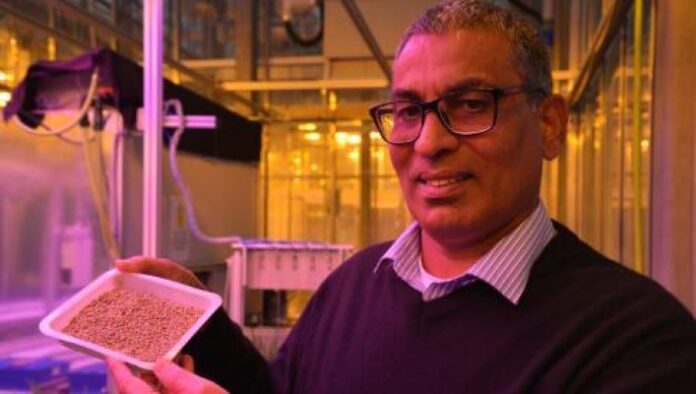Aberystwyth University in the United Kingdom (UK) and the International Crops Research Institute for the Semi-Arid Tropics, based in Niamey, Niger, have developed a new drought resistant strain of pearl millet to help prepare for weather disruptions caused by climate change.
Pearl millet is a drought resistant cereal crop that is a staple in many African countries, and following successful trials of the new strain of the crop in Niger, researchers say the seed is now ready for wider use.
Rattan Yadav, Professor of Plant Genetics at Aberystwyth University, who led the research and has been working on developing the crop since 1996, said: “Developing this new variety has been a lifetime’s work for me. What has motivated me all these years is knowing that it could make such a big difference to people living in many countries around the world – places where farming is tough and getting tougher because of climate change.”
He added; “Pearl millet is a crop that already feeds people in places with some of the most marginal agricultural land in the world.
“This new strain that we have bred and trialled reacts better to rain, and so will make it even more resilient.”
The new crop also comes with some important health benefits.
The researchers took advantage of another of pearl millets’ useful qualities and developed their new strain to have a low glycaemic index (GI).
With the number of people living with diabetes in Africa set to double by 2045, access to low GI staple crops offers tangible benefits.
These foods gradually release blood sugar, which is helpful for people with diabetes to consume as a spike in blood sugar levels can be very dangerous.
Professor Yadav added; ″Our initial goal was to enable people to have access to food in times of drought. But, with a prediction that 41 million Africans will have type II diabetes by 2045, our new millet variety is a real game changer.″
The research at Aberystwyth University was supported by the UK Government, INNOVATEUK, the Royal Society and the UK Newton Fund.









